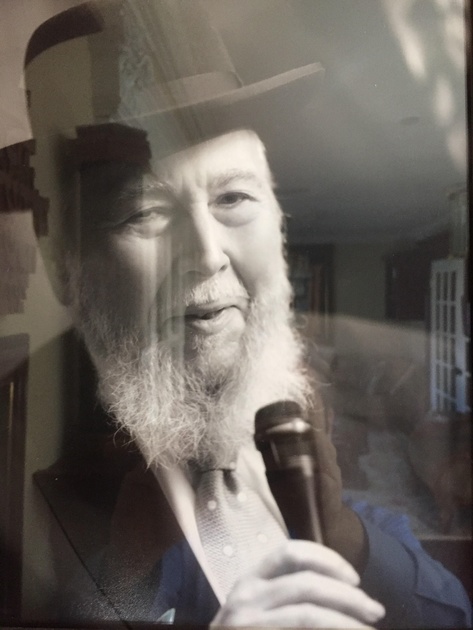
Eruvin 16
הֲדַר אוֹקֵים רַב נַחְמָן אָמוֹרָא עֲלֵיהּ וּדְרַשׁ: דְּבָרִים שֶׁאָמַרְתִּי לִפְנֵיכֶם טָעוּת הֵן בְּיָדִי. בְּרַם כָּךְ אָמְרוּ: יָחִיד — נוֹתְנִין לוֹ בֵּית סָאתַיִם, שְׁנַיִם — נוֹתְנִין לָהֶן בֵּית סָאתַיִם, שְׁלֹשָׁה — נַעֲשׂוּ שְׁיָירָא וְנוֹתְנִין לָהֶן כָּל צָרְכָּן.
Rav Naḥman then placed a speaker standing over him, and taught: The matters that I stated before you are an error on my part. Indeed, this is what the Rabbis said: With regard to an individual, the halakha provides him with an area of two beit se’a. With regard to two individuals, the halakha provides them with an area of two beit se’a as well. Three individuals assume the legal status of a caravan, and the halakha provides them with space to satisfy all their needs.
for Video Shiur click here to listen: Psychology of the DAF Eruvin 16
Tosafos Avodah Zara 58a
מי כסיפא ליה מילתא לומר טעיתי בהדיא וחוזר אני בו הרי בכמה מקומות מצינו שהיה אומר דברים שאמרתי לפניכם טעות הן בידי
The Peri LaTzaddik (Re’eh 7) notes that Rava was zoche to extraordinary hatzlacha that the din should be emes because of his great humility in admitting he was wrong, who we find admitted similarly to Rav Nachman, in four places in Shas. We see his supernatural success in the famous story of the “cane of Rava”:
Nedarim 25a
לא לאפוקי מקניא דרבא דההוא גברא דהוה מסיק בחבריה זוזי אתא לקמיה דרבא אמר ליה ללווה זיל פרע לי אמר ליה פרעתיך אמר ליה רבא אם כן זיל אישתבע ליה דפרעתיה
The Gemara responds: No, this warning comes to exclude a case similar to that cane of Rava, in which a person attempts to deceive the court but does not necessarily utilize his own terminology, as there was a certain man who claimed money from another. He came before Rava to adjudicate the case. The creditor said to the borrower: Go repay me your debt. The borrower said to him: I already repaid you. Rava said to him: If so, go take an oath to him that you repaid him.
אזל ואייתי קניא ויהיב זוזי בגויה והוה מסתמיך ואזיל ואתי עליה לבי דינא אמר ליה למלוה נקוט האי קניא בידך נסב ספר תורה ואישתבע דפרעיה כל מה דהוה ליה בידיה
The borrower went and brought a hollow cane, and placed the money inside it, and was leaning upon it, and went leaning upon it to the court. He said to the lender: Hold this cane in your hand so that I can take an oath while holding a Torah scroll. The borrower took the Torah scroll and swore that he had repaid the entire sum that had been in his possession.
ההוא מלוה רגז ותברה לההוא קניא ואישתפך הנהו זוזי לארעא ואישתכח דקושטא אישתבע
That creditor then became angry upon hearing the borrower taking a false oath and broke that cane, and all of those coins placed inside fell to the ground. And it turned out that he had taken the oath in truth, since he had returned all the money at the time of the oath by giving him the cane with the money inside. However, this was a deceitful tactic, as he intended that the creditor return the cane and the money in it to him after he had taken the oath. In order to prevent this kind of deception, the one taking the oath is warned that he must take the oath according to the understanding of the court.
What kind of wonderful things and supernatural success can WE merit if we are able to admit that we are wrong?
for Video Shiur click here to listen: Psychology of the DAF Eruvin 16
Translations Courtesy of Sefaria
Photo Abba Mari Rav Chaim Feuerman, Ed.D. ZT"L Leiyluy Nishmaso
Translations Courtesy of Sefaria, except when, sometimes, I disagree with the translation ![]()
If you liked this, you might enjoy my Relationship Communications Guide. Click on the link above.
Rabbi Simcha Feuerman, Rabbi Simcha Feuerman, LCSW-R, DHL is a psychotherapist who works with high conflict couples and families. He can be reached via email at simchafeuerman@gmail.com
 Previous
Previous

